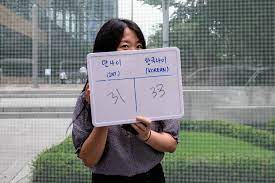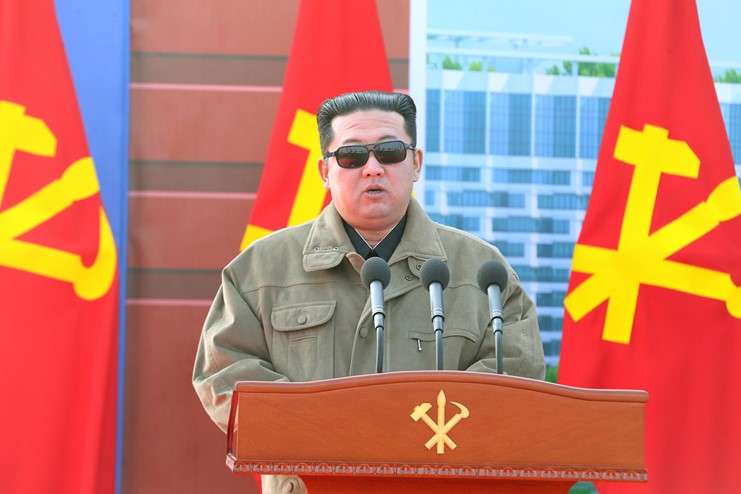
From Wednesday 28 June, South Koreans became one, or in some cases, two years younger overnight. This remarkable fact occurred when a rule was introduced to bring the country in line with the rest of the world and adopt the standard internationally-recognised system for counting someone’s age.
Largely unknown outside of Asia, South Korea has used its own method which deemed an individual to be one-year-old at their birth. Then another year would be added on the 1st of January each subsequent year. This meant that anybody born on a New Year’s Eve was incredibly classed as two-year-old after the clock struck midnight, yet in reality were actually less than a day old.
So, by switching to the universally recognised format, people’s ages dropped by either one or two years, depending upon when in the calendar they were born.
It has long been argued that the centuries old system was holding the country back as it impacted its reputation as an advanced global economy.
It is understood that the new system will be used in laws, contracts and official papers, but the previous practice will still be used for South Korea’s mandatory military conscription, and starting school, as well as things like buying alcohol, or tobacco.
System has created disputes
Whilst respecting every nation’s right to operate under laws that are specific to themselves, within the boundaries of right and wrong, there is no doubt that South Korea’s age-counting system, which dates back centuries, has caused confusion and created difficulties for its citizens.
Indeed, in some cases it has led to long legal disputes over situations such as insurance pay-outs and determining eligibility for government assistance programmes. Also, it saw challenges involving start and end of the “peak wage’” which sees an employees’ salary reduce as they approach retirement.
President pushed for change
The aligning with international standards was pushed for by President Yoon Suk Yeol when he ran for office last year, saying at the time that the traditional age-counting methods created “unnecessary social and economic costs.”
He went on to state: “We will enhance education and promotional activities in order to establish a culture of using the international age system in people’s daily lives at the earliest possible date.”
Still not completely free of old method
That day came on 28 June when the Ministry of Government Legislation made the announcement that the revisions to the Basic Administrative Act and Civil Act, which were passed in December 2022, had come into effect.
To many people’s disappointment however, the previous processes were not entirely scrapped, with a rather unsatisfactory explanation stating that any exceptions to the rule would remain in place because “it is easier to manage!”
Hoping to end culture of ageism
This meant that many existing statutes will remain, much to younger South Korean’s frustration who will still have to wait to buy cigarettes and alcohol from the year, and not the day, that they turn nineteen.
Nevertheless, three in four nationals were in favour of the standardisation, many pointing to the hope that it can help break down the country’s hierarchical culture. Indeed, there is widespread belief that there has been a subconscious layer of ageism in people’s behaviour.
Aligning with neighbours
The South Korean age-counting principles were also used by other East Asian countries, but the vast majority have long since dropped them. Japan adopted the international standard back in 1950, and even controversial neighbour North Korea chose to change to the 1980s.






0 Comments